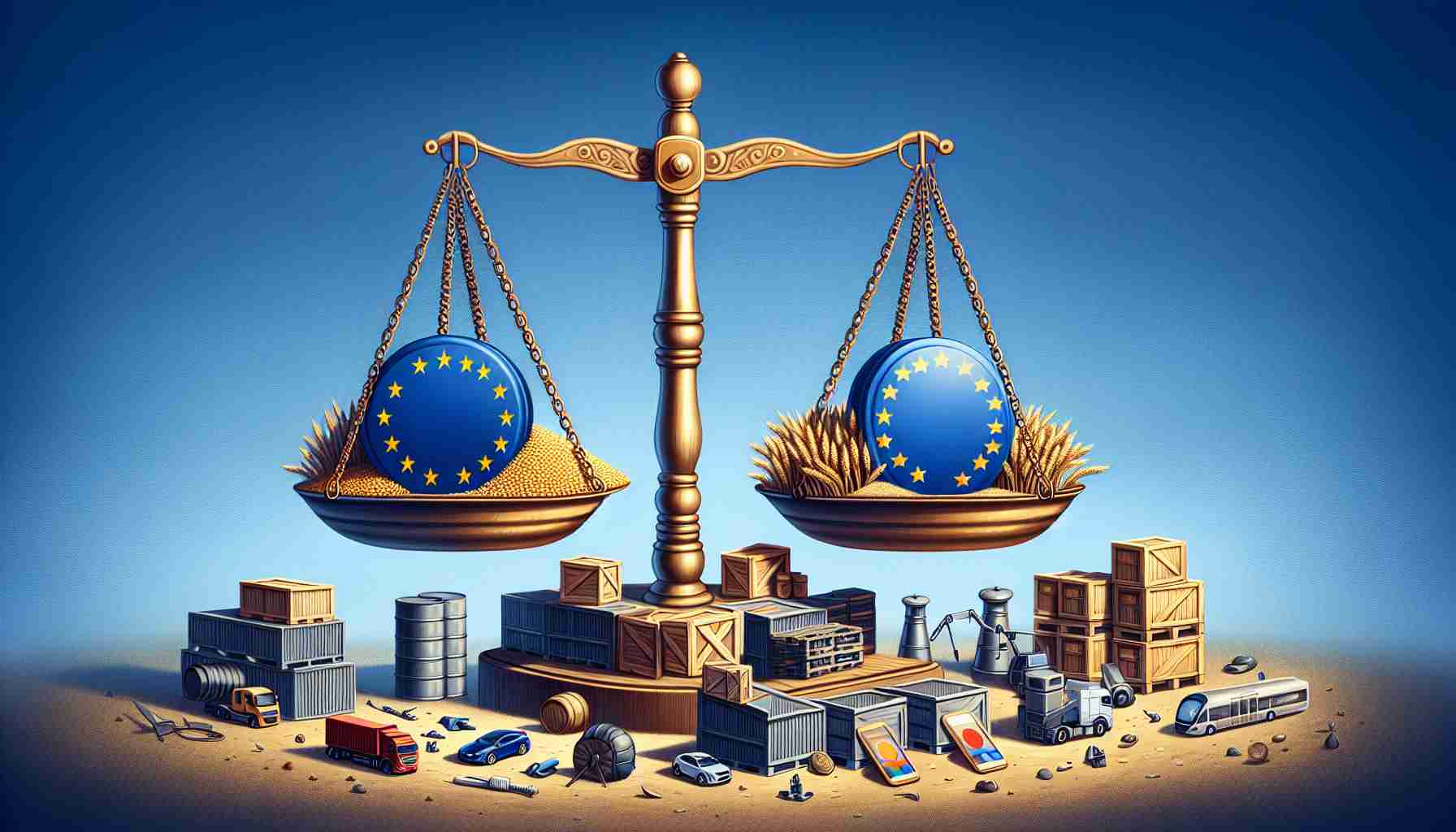- Donald Trump has imposed hefty tariffs on European aluminum and steel, escalating international trade tensions.
- Ursula von der Leyen, President of the European Commission, vows a strong EU response to protect economic interests.
- Tariffs are seen as harmful not just to businesses, but to consumers, affecting the daily lives of many.
- The EU is considering targeting American tech companies and introducing a digital tax as potential countermeasures.
- Trade between the US and Europe is highly integrated, with total trade reaching 851 billion euros, presenting significant risks if tensions rise.
- Europe is determined to defend its economic interests and maintain its position in global trade discussions.
The heat is rising once again in international trade as Donald Trump throws down the gauntlet, imposing hefty tariffs on European aluminum and steel. The European Union, led by a resolute Ursula von der Leyen, is ready to strike back decisively. As the President of the European Commission lamented the surprising move, she made it clear that this tariff storm would not go unchallenged.
Von der Leyen focused on the economic undercurrents of this decision, arguing that such tariffs hurt not just businesses, but everyday consumers as well. She assured the global audience that the EU is prepared to safeguard its economic interests and protect the livelihoods of its workers, companies, and citizens. The Commission is meticulously planning its counterattack, evaluating potential measures that might target American tech giants, hinting at the introduction of a digital tax in Europe.
Additionally, the EU is considering deploying its defensive tools to curb service trade with countries that wield tariffs as blunt instruments to exert political pressure. As trade between the US and Europe reached a staggering 851 billion euros this year, such a tiff risks entangling deeply integrated supply chains.
The stakes are sky-high. Europe imports vital resources like oil and pharmaceuticals from the US, while exporting automotive and machinery expertise. With such intertwined economies, the specter of a trade war looms large but the EU remains steadfast. The key takeaway: in this escalating battle of tariffs, Europe stands ready to defend its corner and ensure its voice is heard on the global stage.
Is a New Trade War Brewing Between the US and Europe? Key Insights and Implications Unveiled
Overview
The international trade landscape is heating up as former US President Donald Trump reinstated significant tariffs on European aluminum and steel. The European Union, outwardly represented by European Commission President Ursula von der Leyen, is actively drafting its response to these economic tensions, with potential repercussions affecting businesses and consumers on both sides of the Atlantic.
How the Tariffs Could Impact Both Economies
This re-imposition of tariffs is a critical move with wide-ranging implications:
– Impact on Consumers and Businesses: Tariffs typically lead to increased prices for goods, which can burden everyday consumers and businesses. Both sectors may face amplified costs that can ripple through the economy, affecting everything from household spending to corporate investment strategies.
– Effect on Supply Chains: The trade relationship between the US and the EU is highly interconnected, with an annual trade value reaching 851 billion euros. Tariffs can disrupt these supply chains, affecting industries reliant on cross-border collaboration and supply, including automotive, machinery, pharmaceuticals, and technology sectors.
Pros and Cons of the Tariffs
– Pros:
– Domestic Protection: Tariffs can protect domestic industries by making foreign imports more expensive, potentially boosting local economies and preserving jobs.
– Political Leverage: By imposing tariffs, countries can exert political pressure in negotiations and trade deals.
– Cons:
– Higher Consumer Prices: Consumers may face higher prices, leading to reduced purchasing power and potential declines in quality of life.
– Retaliatory Measures: Countries affected by tariffs often impose their own tariffs, leading to a trade war that could harm global markets.
EU’s Possible Countermeasures
The EU, under von der Leyen’s guidance, is considering:
– Digital Tax Introduction: Evaluating the possibility of taxing American tech giants operating in Europe to counterbalance the impact of US tariffs.
– Service Trade Restrictions: Exploring the restriction of service trade from countries using tariffs as political tools.
Predicted Trends and Future Forecasts
– Increased Trade Tensions: Expect continuous friction between nations as they navigate protectionist policies.
– Greater Focus on Digital Economy: As physical goods face tariffs, the digital sector may see regulatory changes that affect tech giants and digital service providers worldwide.
Innovations and Sustainability in Trade
Discussion around tariffs also includes potential innovations and sustainability concerns:
– Trade Innovations: Exploring blockchain and AI technologies that can make supply chains more resilient against political and economic disruptions.
– Sustainability: Evaluating how trading practices can align with sustainability goals to ensure equitable and environmentally-sound economic growth.
Market Analysis and Predictions
– Short-Term Uncertainty: Anticipate market fluctuations as businesses adjust to new trade conditions and strategy alterations.
– Long-Term Adjustment: Firms may increasingly shift to new markets or alternative supply chain models to mitigate the impact of tariffs.
What Should Businesses and Consumers Do?
– Adaptation Strategies: Businesses should diversify their supply chains and explore new technologies to minimize impact.
– Consumer Awareness: Stay informed about changes in product prices and market trends to make cost-effective purchasing decisions.
Related Links
– European Commission
– Euractiv
– The White House
This complex trade landscape calls for strategic responses and robust planning to navigate an increasingly interconnected global market. As such, stakeholders from industry leaders to policymakers must remain vigilant and adaptable in the face of potential economic volatility.



















